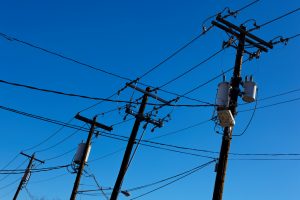In Daesh’s Syrian capital of Raqqa, more families have been told that their sons had died fighting for the organization across the border in Iraq. Reportedly, the families had been kept in the dark about their children’s whereabouts since they were sent off for the equivalent of basic training months ago. Daesh representatives told the families that they did not know the location of their sons’ bodies, which provoked a sense of hatred from the families of the killed, and provides further evidence of Daesh’s disregared for the feelings and concerns of the people in areas they control
Cash-Grab in Dayr al-Zawr? On 30 October, members of Daesh’s Hisba (morality police) raided a money changer’s office in Dayr al-Zawr, seizing stockpiles of gold and cash totalling tens-of-thousands of dollars. While the owner of the shop was arrested on accusations of aiding the Syrian regime in its fight against Daesh in the city, the raid could equally have been a simple cash-grab on the part of Daesh, which is struggling to financially maintain its “state”.
Desperate new Daesh “tariff”on goods. Belying its claim to have “broken down borders”, in Daesh-held Dayr al-Zawr province, the organization had instituted a new tax on goods coming to Syria from Iraq, effectively re-erecting at least one economic barrier to internal trade. Reports from the town of Abu Hamam said that the tariffs were being enforced at newly-established checkpoints in Dayr al-Zawr’s northeastern countryside. Trucks being stopped at these checkpoints are forced to pay a “border tax” for each load that enters Syria from Iraq. This information points to a deep hypocrisy within Daesh as well as a continuing need for new sources of income. By way of background, shortly after declaring its “Caliphate” in June 2014, Daesh propaganda touted a freedom of movement and goods between its Syrian and Iraqi capitals of Raqqa and Mosul, with a special emphasis put on the reintegration of cross-border tribal families.
Daesh arrests female farmers for “dressing masculinely”. According to reports from al-Tabqa, Raqqa province, Daesh’s Hisba morality police arrested three female farmers because, according to Daesh, they were “wearing clothes that resembled those of men”. The women, who were taken into custody in Dayr al-Zawr’s western countryside, were then flogged in front of their families. Their male guardians were also arrested, accused of “permitting them to work in the fields”, which is against Daesh’s strict interpretation of shari’a law but has long been a fact of life in rural Syria. In a related story, Female Hisba members carried out an arrest campaign in the western outskirts of al-Bab city, Aleppo province, targeting women specifically. Arrestees were accused of, among other things, violating clothing restrictions, and “talking and laughing in a raised voice in the street”. As is usual practice, their guardians were punished for their perceived transgressions, with floggings ensuing.
Makeup salesman arrested. Also in al-Tabqa, a local shopkeeper was arrested on 29 October under suspicion that he was selling makeup to local women. The shopkeeper’s stall was then searched by members of Daesh’s Hisba morality police, which resulted in the seizure of “beauty products and makeup for women”, which Hisba members said was against the law. The owner of the shop was then transferred to the local shari’a court while his shop was closed and his family told that they were not allowed to re-open it, another example of Daesh punishing whole families for an individual’s ‘crimes’
Surprise searches at internet cafes increase. Also in the Daesh-controlled northern Aleppo city of al-Bab, the frequency and severity of surprise searches at internet cafes have both increased in recent weeks, showing Daesh are becoming increasingly paranoid. Customers’ mobile phones and other mobile devices were searched, along with their social media profiles. Daesh members additionally searched through their photo and video galleries present on their devices
Image credit: Flickr, creative commons


